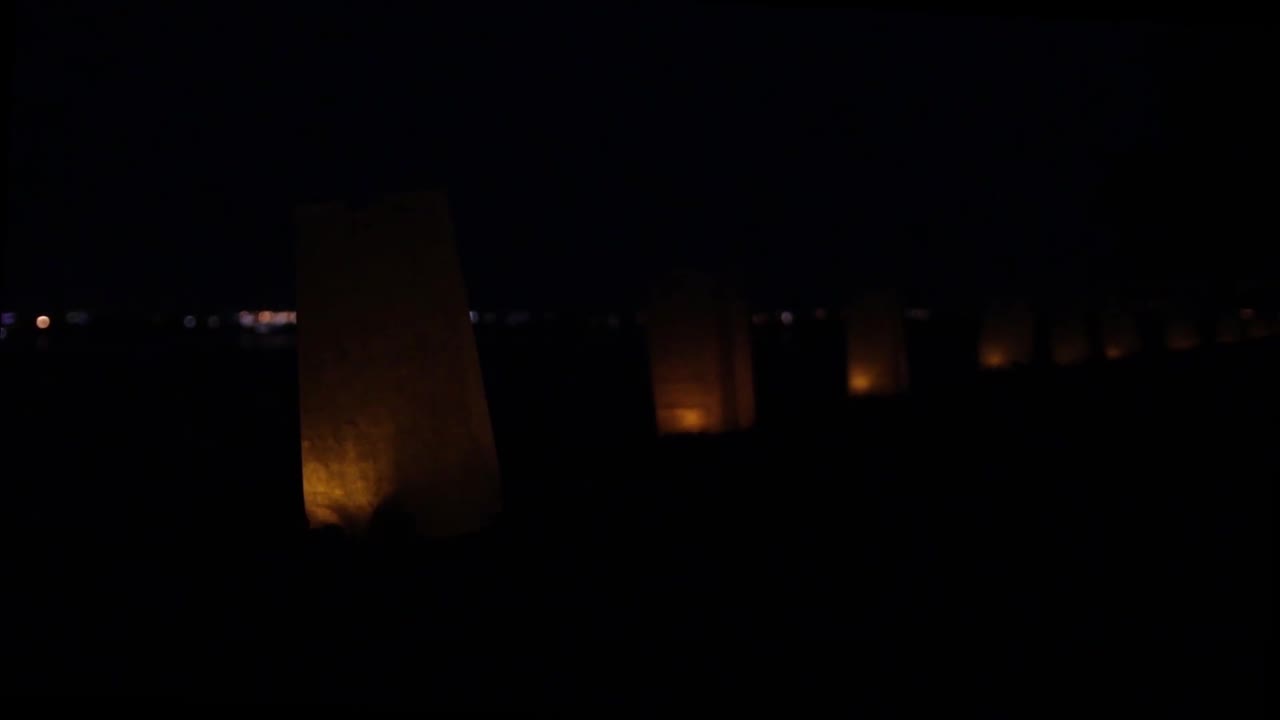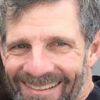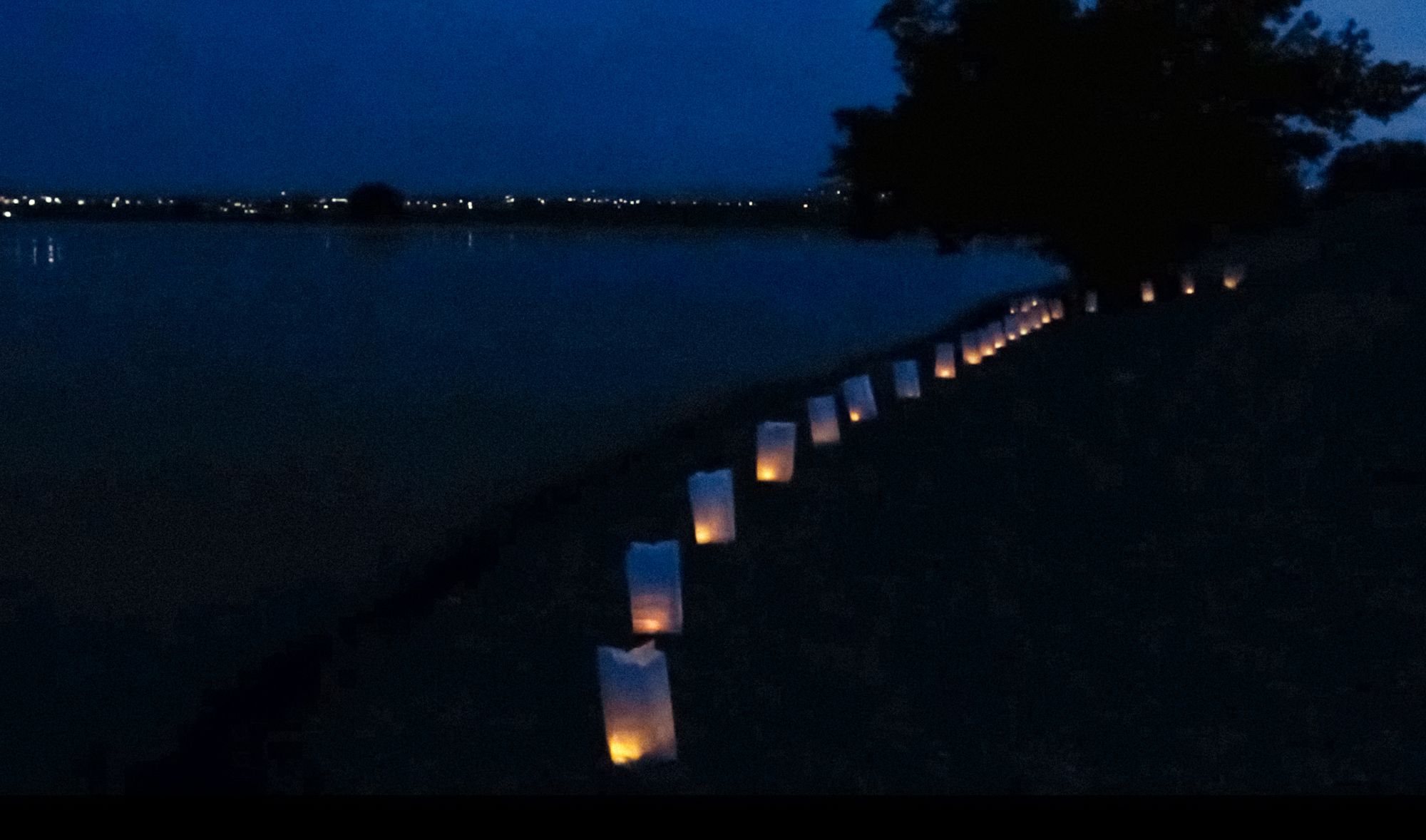We moved to Okinawa, Japan, when I was eleven years old. It was my second time living in Japan, my father having been previously stationed near Yokohama when I was just starting grade school. I have many fond memories of my time in Japan. I remember friendships with Japanese families, exploring the jungles and the beaches as a child, and even learning enough Japanese to be conversant and get around the island on my own.
It was during the height of the Viet Nam war. We were also in the middle of the Cold War with the Soviet Union. War was a part of our everyday lives. I remember playground jokes about A-bombs and H-bombs, duck and cover drills, and military jets and bombers flying daily on their way to Viet Nam. As a child, war was an abstract concept of heroes and enemies. We were the good guys fighting against those who wanted to destroy our country, taking the fight to the enemy to protect us from the evil of communism. I was lucky to be an American.
Shortly after my twelfth birthday, a fully loaded B-52 bomber scheduled for a bombing mission over Viet Nam crashed at the end of the runway on Kadena Air Force Base as it aborted takeoff. The explosion of its 30,000 lb. bomb load rocked the island, left a huge crater, and damaged homes and structures for miles. I remember seeing that crater every time we drove past the runway. It was very close to the fence line between the base and the local community and clearly visible from the road on the civilian side.
We didn’t know it then, but an ammunition depot with chemical, conventional, and nuclear weapons was less than a mile away. Imagine the devastation and loss of innocent lives that would have been caused if the B-52 had become airborne and crashed into that depot.
After my father’s tour of duty in Okinawa, we moved to Morocco for a couple years and then to Homestead, Florida where I finished high school. As the son of an enlisted military man, I was eligible for a presidential nomination and appointment to a service academy — a way to pay for my college education. I attended the US Naval Academy, graduated, and received my commission as a naval officer. Having done well academically, I was selected for the nuclear power program, and after a year and a half of additional training, I joined the crew of my first submarine. As a fast attack, our mission was to protect battle groups from enemy submarines and to conduct other missions in support of national security.
For my next submarine assignment, I was the chief engineer of one of the early fleet ballistic missile submarines. Our mission throughout the Cold War and continuing today was euphemistically called strategic deterrence. More realistically, though, it is the concept of deterrence through mutually assured destruction. Our job was to prevent nuclear war by hiding in the vast ocean, ready to launch our nuclear weapons within minutes after receiving an authenticated order from the president. We trained and practiced following the secret, encoded protocol to verify that the order to launch was valid. We practiced entering the targets into the missile’s computers. We practiced maneuvering the submarine to the correct depth and position for launch. And we ran drills on how to respond if something went wrong. As the third in command, I had a significant role in ensuring we were always ready to carry out our mission.
And I knew that if the order ever came, it would mean that our mission had failed. That somewhere, our nuclear arms deterrence had turned in to nuclear war. That Armageddon had arrived. That the science fiction fantasy of a post-apocalyptic world had become a reality.
And I know that I would have carried out the order and done what I was trained to do: unleash a nuclear nightmare, ending the lives of millions of innocent people. If such an order came, it would certainly mean that millions of Americans had been targeted and our own families likely killed. I would have played my role in mutually assured destruction.
But I also believed that that day would never come. I believed that the checks and balances in government would prevent the unthinkable. That strategic deterrence would be successful because the alternative was so horrible. That in both the United States and the Soviet Union, our governments would never actually start a nuclear war. So far, strategic deterrence had worked. I also knew there was no guarantee that it always would.
When I left active duty to start a civilian career, my experience in nuclear power gave me the background needed for the environmental cleanup work here at the Hanford Site in Southeast Washington. Before moving here, I rarely thought about the Manhattan Project or where the material for the nuclear weapons I deployed would come from. After that tour on a ballistic missile submarine, I didn’t think much about the possibility of nuclear war. It was abstract and unlikely.
But art has a way of reframing how we think about things.
Most of my Hanford work has been just a few miles from the B Reactor, the first large scale nuclear reactor. Built in 1944, B Reactor produced the plutonium that was used for the bomb dropped over Nagasaki, Japan on August 9, 1945. As a significant part of American history, B Reactor is now a part of the National Park Service, Manhattan Project National Historical Park.
As a part of the Mid-Columbia Mastersingers, in 2016 I participated in the first concert held inside the B Reactor facility. As we prepared for this significant event, two of my good friends, Artistic Director Justin Raffa and local composer Reginald Unterseher, carefully selected the music to reflect on the technology and legacy of this historic place. Human beings using the alchemy of science and engineering to produce the plutonium for an atomic weapon that would forever change the course of human history. We wanted to tell the story and stimulate reflection, not pass judgment.
The concert included songs about time, technology, life near Hanford, and the legacy of radioactive contamination. It also included a song by Seattle composer Karen P. Thomas with lyrics from a poem called “Over the City” by Molly McGee. While living in Japan, McGee had visited both Nagasaki and Hiroshima. In poetic metaphor, she recalled the horror of the bombings, our tendency to forget the horrors and atrocities of war, and the importance of remembering. “Over the City” concludes with a refrain in Japanese:
wasurenai koto ga the act of not forgetting
ikiba no nai shi no the dead without homes
yuki tokoro to naru can become shelter
Although we had been rehearsing the music for many weeks, I was not prepared for one of the most profound experiences of my life.
Seventy-one years after the bombings that killed over 200,000 Japanese civilians, standing in front of the face of the B Reactor, singing in Japanese about the importance of not forgetting, about the homeless dead, I wept. Five years later, I still weep when I think about that experience.
Military strategists and historians debate whether using atomic weapons to destroy Hiroshima and Nagasaki saved lives. Clearly, the war ended sooner than it otherwise would have. But we must not forget the cost. Whether we blame the Japanese government for starting the war or the U.S. decision to use nuclear weapons, those innocent Japanese civilians did not deserve to die. We must never forget that.
War is ugly, cruel, and violent. Thinking of war as noble or heroic in the abstract belies the realities of lives lost and families destroyed. War should always be the last option — never the first.
It is much too easy for the United States to go to war. The wars in Viet Nam, Iraq, and Afghanistan cost trillions of dollars and hundreds of thousands of lives. Since World War II, we have avoided the use of nuclear weapons, but there is no guarantee they won’t be used in the next war.
Current estimates say there are 15,000 nuclear warheads in the arsenals of the nine countries known to hold nuclear weapons. The United States and Russia hold the vast majority. We each have enough weaponry to destroy the world many times over.
And yet we continue to fund the war machine. How much more effective would it be if we used those resources to address the conditions that lead to war? What if instead of so readily taking the fight to our enemies, we helped them become our allies, our friends? What if we worked together with our allies to promote human rights, eliminate human suffering, and promote peace?
I know there is no simple solution. I recognize that we need a military to ensure the common defense of our nation. I understand that there are those who would attack and destroy the United States if they could. But I think we go to war too quickly and end war too slowly.
I want to live in a world of peace. I want us to eliminate the threat of nuclear war. And I want us to work together to find alternatives to violence so we never have to execute our capacity for mutually assured destruction.
Ted Miller grew up around the world but now lives in Richland with his wife. He’s a runner, actor, singer, nuclear engineer, and graduate of the U.S. Naval Academy.
Ted believes that if more people worked toward love and understanding instead of giving in to fear and divisiveness, the world would be a better place. More of his writing can be found at tedmiller.net.




